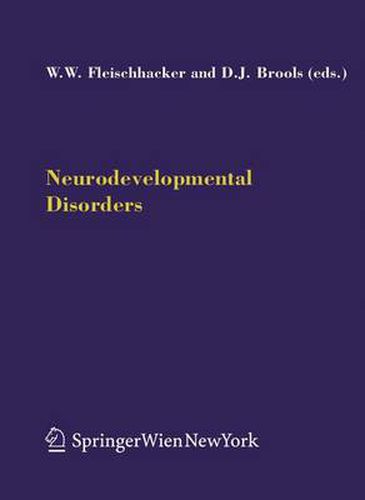Readings Newsletter
Become a Readings Member to make your shopping experience even easier.
Sign in or sign up for free!
You’re not far away from qualifying for FREE standard shipping within Australia
You’ve qualified for FREE standard shipping within Australia
The cart is loading…






This title is printed to order. This book may have been self-published. If so, we cannot guarantee the quality of the content. In the main most books will have gone through the editing process however some may not. We therefore suggest that you be aware of this before ordering this book. If in doubt check either the author or publisher’s details as we are unable to accept any returns unless they are faulty. Please contact us if you have any questions.
We have great pleasure to present the latest extension of the European Institute of Health Care book series. This volume is devoted to neurodevelopmental d- orders. Again, we had the privilege to be able to work with reknowned experts who have agreed to contribute to this endeavour. The book comprises a number of topics related to psychosocial and motor development and is exemplary with regard to its comprehensiveness, as reviews of the topics presented are generally not available in a single publication. It starts with a timely and critical discussion of the genetics of attention deficit hyperactivity disorder by Dr. Buitelaar in which prospects and challenges of this approach are outlined. The next chapter by Drs. Nicolson and Fawcett deals with dyslexia and its relationship to cerebellar function providing a framework that can explain motor, speed, and phonological deficits in a unified approach. Diagnostic and treatment aspects of speech development disorders are the focus of Dr. Zorowka’s contribution in which, among other issues, the necessity of mul- professional cooperation is stressed. Dr. Sigmundsson then focuses on disorders of motor development. 6-10 % of children have motor competence well below the norm, which often persist. The clumsy child syndrome must be seen and treated as a neurological dysfunction. The relationship between tic disorders and obsessive compulsive disorder, two disturbances generally treated by different medical specialists, namely neurologists or psychiatrists, is then reviewed by Drs.
$9.00 standard shipping within Australia
FREE standard shipping within Australia for orders over $100.00
Express & International shipping calculated at checkout
This title is printed to order. This book may have been self-published. If so, we cannot guarantee the quality of the content. In the main most books will have gone through the editing process however some may not. We therefore suggest that you be aware of this before ordering this book. If in doubt check either the author or publisher’s details as we are unable to accept any returns unless they are faulty. Please contact us if you have any questions.
We have great pleasure to present the latest extension of the European Institute of Health Care book series. This volume is devoted to neurodevelopmental d- orders. Again, we had the privilege to be able to work with reknowned experts who have agreed to contribute to this endeavour. The book comprises a number of topics related to psychosocial and motor development and is exemplary with regard to its comprehensiveness, as reviews of the topics presented are generally not available in a single publication. It starts with a timely and critical discussion of the genetics of attention deficit hyperactivity disorder by Dr. Buitelaar in which prospects and challenges of this approach are outlined. The next chapter by Drs. Nicolson and Fawcett deals with dyslexia and its relationship to cerebellar function providing a framework that can explain motor, speed, and phonological deficits in a unified approach. Diagnostic and treatment aspects of speech development disorders are the focus of Dr. Zorowka’s contribution in which, among other issues, the necessity of mul- professional cooperation is stressed. Dr. Sigmundsson then focuses on disorders of motor development. 6-10 % of children have motor competence well below the norm, which often persist. The clumsy child syndrome must be seen and treated as a neurological dysfunction. The relationship between tic disorders and obsessive compulsive disorder, two disturbances generally treated by different medical specialists, namely neurologists or psychiatrists, is then reviewed by Drs.